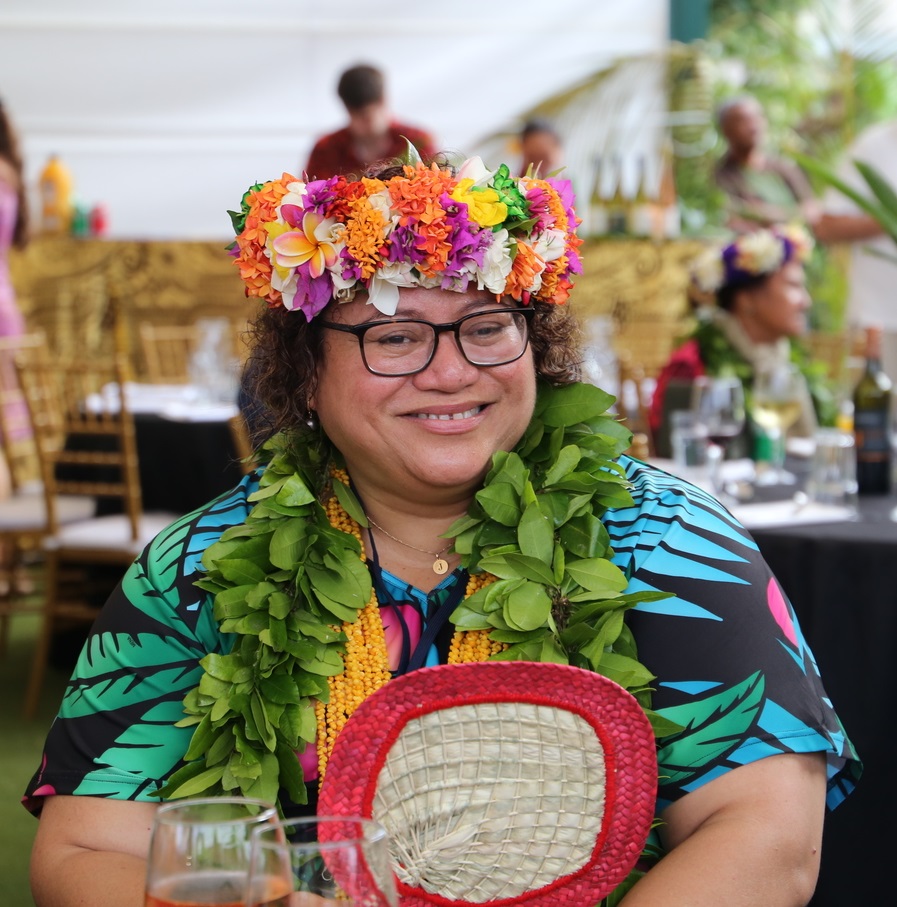WCPFC20 ends with mixed results
Tuesday 12 December 2023 | Written by Rashneel Kumar | Published in Economy, Environment, National, Pacific Islands, Regional

Niue’s Josie Tamate chaired the 20th Western and Central Pacific Fisheries Commission at the National Auditorium last week. MMR/23121118
Hosts Cook Islands expressed satisfaction with the outcomes of the 20th Western and Central Pacific Fisheries Commission (WCPFC20), which concluded over the weekend.
However, an international observer group voiced disappointment over the lack of decision on crucial transshipment and compliance reforms.
The five-day meeting, chaired by Josie Tamate of Niue and held at the National Auditorium, ended at 3.30am on Saturday.
Pamela Maru, Secretary of Ministry of Marine Resources, said the country is “really happy” with the meeting’s outcomes, particularly in achieving some progress in harvest strategies for South Pacific albacore tuna, including the adoption of interim target reference points.
“We’re also pleased to see some work in transshipment progress and consideration around improving monitoring like progressing the work on the standards for electronic monitoring in the region and observer coverage which are really important,” Maru said.
“For us we would like to also keep an eye to the future, so work on climate change and how that impacts our fisheries is really important. That’s something we’re going to have to work on, continue to focus on in terms of building resilience into the stocks and into the management frameworks that we have.”
Pew Charitable Trusts, one of the observers at the meeting, acknowledged the progress made on harvest strategies for valuable fisheries but expressed disappointment with the lack of action on much-needed transshipment and compliance reforms.
While the Commission agreed on modernised, science-based management plans for north Pacific albacore and skipjack tunas, it failed to reach an agreement on updating its transshipment measure despite years of discussion. Additionally, it did not make its compliance and monitoring regime permanent.
Glen Holmes, a senior officer for Pew’s international fisheries programme, said:
“Pew commends WCPFC for adopting a harvest strategy for north Pacific albacore fisheries, which are worth more than $1 billion each year. This modernised, science-based management plan follows a similar measure approved by the Inter-American Tropical Tuna Commission in August. After eight years of work, the first Pacific-wide harvest strategy has now been agreed, a significant achievement for the region and a major step forward for the long-term sustainability of this stock.”
“WCPFC also agreed to a mechanism to effectively implement its 2023 skipjack management procedure (MP). Now, the final piece of this MP is in place and sets WCPFC up to more sustainably manage the world’s largest tuna resource.
“After many years of negotiations, we are extremely disappointed that WCPFC could not agree to much-needed revisions to its transshipment rules, leaving it with the least-effective regulations of the major tuna regional fisheries management organisations. It also could not agree to a permanent compliance and monitoring measure. The inability of member countries to compromise and find consensus on these and other important issues weakens its efforts to put stronger, more comprehensive management in place for valuable Pacific fisheries.”
Rarotonga environmental group Te Ipukarea Society also participated in the meeting.
TIS director Alanna Smith said they were able to present and speak on their submission, raising awareness on the potential impact of seabed mining to fish stock in international waters.
Smith said their submission was tabled and it was up to the WCPFC scientific committee to look into it and act accordingly.
Meanwhile Maru thanked the government agencies, event managers Kia Orana Collective and international donors for their support in hosting this year’s meeting.
“It’s been such a great event and we have certainly made the Cook Islands proud.”














































